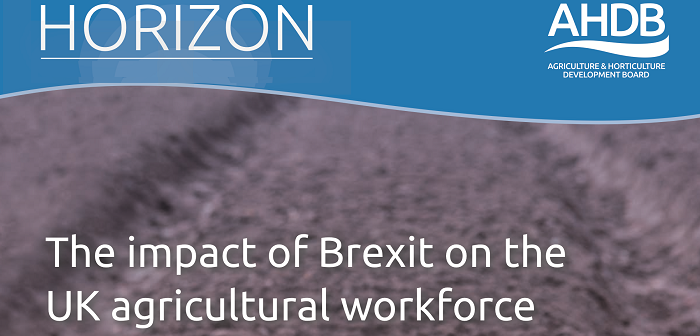The potential post-Brexit reduction in migrant workers could leave some farming businesses with a shortage of labour, rendering them “less competitive” in the global marketplace, according to the latest horizon report from the Agricultural and Horticultural Development Board (AHDB).
Given farming’s current reliance on labour from overseas, the report draws attention to the short term risks surrounding the industry’s performance, in the event of future restrictions being placed on the free movement of people.
“The seasonal nature of demand, and falling unemployment in the UK, have resulted in the UK agricultural industry becoming increasingly reliant on a supply of labour from Europe,” states the report. “Employers in the UK agricultural and horticultural sectors, along with those further up the supply chain, hire both permanent and seasonal migrant workers and maintaining this supply of labour will be an important factor influencing the competitiveness of the agricultural industry, and the wider economy, post-Brexit.
“However, limiting free movement and immigration was one of the themes of the Leave Campaign and was a motivating factor for voters, meaning the UK is likely to place some restrictions on immigration. This throws up major political issues for the Brexit negotiations.”
While suggesting that the longer term response to labour issues could be for farm businesses to invest in more capital-intensive production systems, with automation becoming a more attractive option for growers and producers, the report warns that there are clear risks in the short term.
It also states that in the current climate of uncertainty, businesses will need “significant signals from Government” to help stimulate them to invest the capital required to offset the loss of affordable labour.
As a result, both the current structure of the industry and the nature of UK agricultural production could change significantly, concludes the report.




